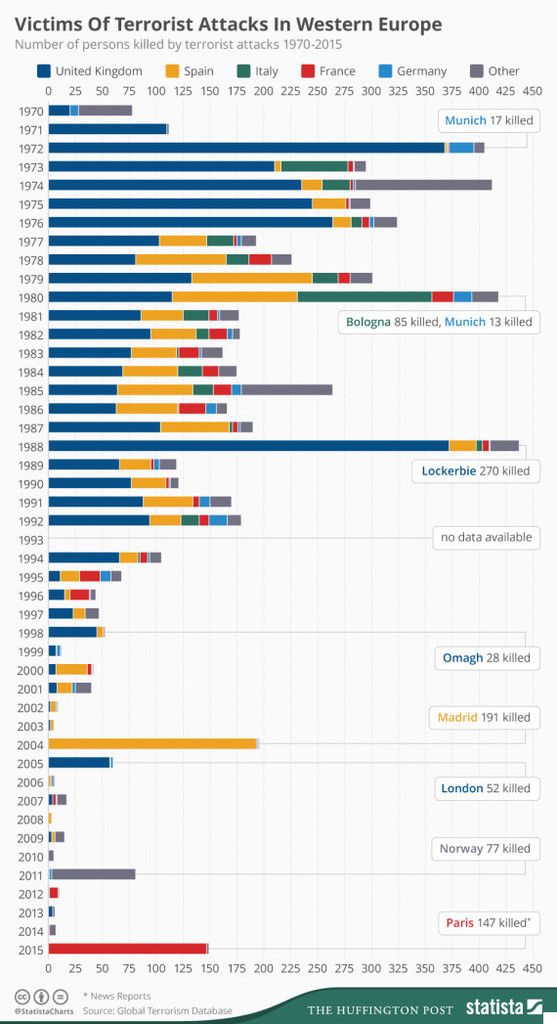UKIP started the snowball rolling and it's picking up size and momentum...All over Europe.
Are you really trying to paint UKIP as the leader of a movement? I think the right wing parties in several European countries would choose to differ.
UKIP started the snowball rolling and it's picking up size and momentum...All over Europe.
This is something that will impact the British Government's ability to conduct its affairs, effectively vetoing our sovereignty, and yet it's being hushed under the carpet and put to the sidelines of the mainstream press. Democracy is supposed to be about people being able to input into decisions that impact them, and with the way the EU is running this is the complete opposite.
How and why does the ECHR have any jurisdiction over none EU members please?
Leaving the EU doesn't make it easier to dump the ECHR. The two are unrelated and the Good Friday Agreement still makes it incredibly difficult.
Yes it is undemocratic and it is to keep it from the public, because 100,000 special interest groups and lobbyists would rip any deal apart before it could be struck.
That said however, I'd be interested in creating a framework where such wide spread involvement in the process could be allowed - because democracy is good, and we should reflect the modern time as well as European history and culture.
So how about this - every special interest group registers their interest and appoints a representative (we'll call them a 'champion'). Every Monday the negotiating team publish their points for the week and the registered groups can agree or oppose them.
If two or more groups disagree their champions enter into combat in an appointed arena (perhaps it could rotate around Europe in big football stadiums?). To boost involvement the types of combat can be chosen by each champion and a popular phone vote for the wildcard 3rd battle.
This would all be televised of course. So far as 'populist politics' goes, it's far more palatable to me than ukip or the national front
The ECHR was drawn up by the Council of Europe after WWII. The Council of Europe's membership is far wider than the EU's membership. I think the only major country in Europe that isn't a member is Belarus.
You didn't answer his question though. What makes you think a US/UK deal is going to be any more beneficial to us, the average joe, rather than benefiting corporations and multinationals, who have their lobbyist hooks firmly into both those governments?
the more important point he is the security risk of unrestricted migration from within the EU, recent attacks have been carried out by EU citizens and among the current migrants are a whole load of potential new EU citizens

Cool story, bro... that's always wheeled out, but is borderline meaningless. That doesn't mean it's what we want now/the jurisprudence of the ECtHR hasn't moved it away from that/our views have developed in the same way the ECtHR's has (I'm not making a judgement on that in this post).
They're not unrelated. It's debatable what impact on our EU membership ditching the ECHR would have, but to pretend they're unrelated is wrong. This should take you to a HoC Library doc, https://www.google.co.uk/url?sa=t&r...FCq9jmcOTYIB87cTw&sig2=nzAQtsYxQaxEIOsfbrFkqg
Mr Jack, that's a very very interesting graph. I figured that the world was much safer from terrorism these days than at any point in the last 50 years but that graph really puts it in perspective.
Does anything here actually think that allowing the EU referendum was a bad idea? because on the whole the people voting aren't educated to a high enough standard, in the subjects required in order to make a worthy decision?
I almost get the impression that it's a bit like allowing the public to vote on what the interest rate should be - the average voter doesn't have a clue about finance or economics, so how could they every make the right decision?
Does anything here actually think that allowing the EU referendum was a bad idea? because on the whole the people voting aren't educated to a high enough standard, in the subjects required in order to make a worthy decision?
I almost get the impression that it's a bit like allowing the public to vote on what the interest rate should be - the average voter doesn't have a clue about finance or economics, so how could they every make the right decision?
Does anything here actually think that allowing the EU referendum was a bad idea? because on the whole the people voting aren't educated to a high enough standard, in the subjects required in order to make a worthy decision?
I almost get the impression that it's a bit like allowing the public to vote on what the interest rate should be - the average voter doesn't have a clue about finance or economics, so how could they every make the right decision?
You don't see countries like France and Germany stepping up their efforts to steal the financial centre of Europe away from Britain?
Given that they're already offering incentives to lure bankers over, if we're out of the eu and they can impose extra transaction fees on Britain it'll play exactly into their hands.
It's not a doomsday scenario or fearmongering either. There's every reason to expect them to push for something such as that. Will it have a major affect on us? Who knows.

